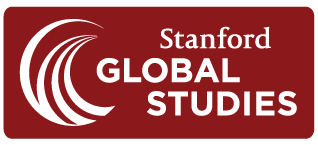Tinker Professors
Fall 2014

Violeta Arancibia studied psychology at Universidad Católica de Chile, specializing in educational psychology. She obtained her PhD at the University of Wales in the UK. She has worked at Universidad Católica de Chile for many years, where she has been a professor at the School of Psychology, director of the Faculty of Social Sciences, head of department of Educational Psychology, and director of the Graduate School of Psychology. Her research has been linked to issues of quality and equity of education in Chile and Latin America, school effectiveness, and in particular the issue of the teachers’ impact on the quality of students’ learning experiences. She has numerous publications, including books and articles in scientific journals. She has been invited as a visiting scholar at Harvard, and a visiting professor at Yale and Radbough in the Netherlands. In 2000, she founded PENTA UC (the Center for the Study and Development of Talent), an innovative educational program for vulnerable students with academic talent, where she was the principal for ten years. For almost three years, she was the director of the CPEIP (the National Center of Training, Experimentation and Pedagogical Research) in the Ministry of Education of Chile. In that position, she led teacher policies relating to teacher education, teacher training, teacher evaluation, and principal training. She also participated in the design and presentation to Congress of a new law pertaining to teacher professional development. She has been a consultant to international organizations such as UNESCO, IDB and World Bank, where she is currently a consultant in educational policies for Latin America. She was chosen as one of the 100 women leaders in Chile.
During fall quarter 2014, Professor Arancibia teaches EDUC 238X: Teacher Policies in Latin America.
Winter 2015

Dr. Isidoro Cheresky obtained his first degree in sociology at the University of Buenos Aires and his PhD in social studies at the University of Tolouse le Mirail in France. He is a researcher and professor. He is a member of Argentina's National Council of Scientific and Technological Research (CONICET) and has been the director of its “ New Political Forms” research group since the late 1990’s. He is full professor and consultant at the University of Buenos Aires, where he has taught political theory since 1970. He has also been a visiting professor in several universities worldwide, such as Ecole de Hautes Etudes en Sciences Sociales-Paris, Université de la Sorbonne Nouvelle-Paris, University of Amsterdam, University of Laval-Québec-Canadá, New School University-New York, Kellogg Institute-University of Notre Dame, and Stanford University. He served for several years as a consultant to the United Nations Program for Development (UNDP) Buenos Aires office and has received honors for his work, among which stand out the Konex-Diploma Merit Award in the discipline of Political Science (2006, Argentina) and the distinction of Chevalier de Palmes Académiques, granted by the French government (2009). His main research interests are the mutation of contemporary democracy and the new citizenship, focusing on a comparative perspective including Argentina and Latin America. His publications include books, book chapters, and journal articles, as well as publications in mainstream media. Among his recently published books are ¿Qué democracia en América Latina? (Editor, CLACSO-Prometeo, Buenos Aires, 2012); Sin programa, sin promesa. Liderazgos y procesos electorales (Co-editor, Prometeo, Buenos Aires, 2012); and El nuevo rostro de la democracia (Fondo de Cultura Económica, Buenos Aires, in press).

Spring 2015

Dr. González Ponciano holds degrees in anthropology from Stanford University (MA) and the University of Texas at Austin (PhD), and is a tenured professor at the Institute of Anthropological Research of the Universidad Nacional Autónoma de México (UNAM). His current research focuses on the history of tourism and the construction of the exotic in the Mayan region. He is also working on a book about socio-racial formation in Guatemala, which analyzes the dilemmas of Whiteness and Indigenismo, and the politics of racism and anti-racism in Mesoamerica. Many of his publications examine the formation of the Mexico-Guatemala border, the interplay between territorial and symbolic borders in transnational migration, public policies aimed at indigenous people, and the role of racial ideologies in authoritarianism and nation building in Mesoamerica. His recent publications include the co-edited volume México y Guatemala: Entre el liberalismo y la democracia multicultural (2009) and “The Shumo Challenge: White Class Privilege and the Post-Race, Post-Genocide Alliances of Cosmopolitanism from Below” (McAllister and Nelson, eds., 2013). González Ponciano was previously a full-time researcher at UNAM's Centro de Estudios Mayas and a tenured professor at the Universidad Autónoma de Chiapas. He has been an invited researcher at the Centro de Investigaciones Regionales de Mesoamérica (CIRMA) in Antigua, Guatemala, and FLACSO-Guatemala. He has also served as a professor with the University of California’s Education Abroad Program, UNAM’s Graduate Program in Mesoamerican Studies, and the Graduate Program of Social Sciences and Humanities at the Universidad de Ciencias y Artes de Chiapas.
During spring quarter 2015, Professor González Ponciano teaches ANTHRO 122A/222A: Race and Culture in Mexico and Central America.


